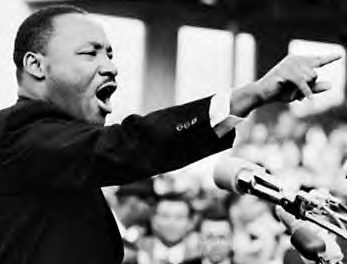From The Atlantic:
Two months ago, Derek Thompson walked readers through the results of a huge new survey by the Pew Research Center on Millennials and their attitudes and opinions. As he noted, this generation, roughly defined as people between the ages of 18 and 33, is the object of almost obsessive levels of scrutiny and observation.
Now, another new survey—this one from Harstad Strategic Research, Inc.—adds to what we’re learning about Millennials, especially their views on political issues. That’s important, because this generational cohort now accounts for about one-fourth of the voting age population—a voting bloc even larger than senior citizens.
Harstad, a firm that mostly conducts surveys for Democrats (including Barack Obama), conducted the poll in March and April for the Youth Engagement Fund and Project New America. You can see the survey instrument itself, along with results and an explanation of the methodology here. The results are presented in graphic form here.
One big takeaway is that Millennials are strongly supportive of governmental intervention in society on a wide array of issues:

A different question produced similarly strong opinions about their preferred role for government:

The survey also suggests Millennials place a high value on equality. Respondents were given a list of values and asked, “Which TWO are most important given the challenges we face as a country?” This bar chart shows the percentage citing each value in response, with equality and economic opportunity mentioned by the largest percentage of respondents. Perhaps unsurprisingly, respondents who identified themselves as Democrats prioritized equality and opportunity while self-identified Republicans ranked personal responsibility and accountability higher:

The poll results show Millennials to be overwhelmingly supportive of progressive policies that promote opportunity and economic security:

According to this poll, members of Generation Y are overwhelmingly progressive on key issues like gun safety, climate change and renewable energy, and access to abortion:

Although Millennials are lopsidedly progressive in their views, there is still a fair amount of variety in their views, based partly on their demographic and life-situation characteristics. The pollsters used the results to develop seven different attitudinal clusters or segments among Millennials:

The analysts explain those attitudinal clusters this way:

The poll also tried to measure what kinds of issue-related messages especially resonate with Millennials. The survey instrument presented respondents with paragraph-length position statements that potential congressional candidates might take. Respondents were asked to say how persuasive they found such a position. (The statements below are much-abbreviated summaries of those position statements.) The results show that if Democrats are looking to maximize their support among Millennials, issues of economic opportunity and pocketbook security are the ones to emphasize:

But Republican candidates won’t have much to fear from this portion of the electorate if Democratic campaigns cannot get these voters to register and turn out to vote. Twenty-six percent of Millennial respondents report that they have not registered to vote:

And while a slim majority of Millennial voters claim they are certain to vote in the 2016 election, they report that the likelihood of their turning out to vote in the midterm elections is much, much lower:

As noted at the outset, interest in the political attitudes of Millennials is nearly obsessive. In addition to the mammoth Pew Research poll mentioned above, yet another survey of Millennials and their political attitudes was released this spring by Harvard’s Institute of Politics. Although it is not easy to make direct comparisons across polls (most obviously, because of differently worded questions and other methodological issues), it’s worth noting some general points of similarity, as well as some differences, emerging from each of these big surveys:
- Although all three polls see Millennials as more aligned with Democrats on political issues, the Pew survey found that 50 percent describe themselves as political independents, compared with 38 percent in the IOP poll.
- All three polls found high levels of support for same-sex marriage and legalization of marijuana.
- High levels of student debt emerged as a prominent concern in all three polls.
- Despite facing economic hardships (like high student debt and a tough economy), respondents in all three polls report high levels of optimism about their economic futures.
In general, both the Pew poll and the IOP survey were much more ambitious and more comprehensive than the Harstad poll—and, at least in my view, used preferable polling methods.
But the Harstad survey, commissioned by organizations that have overt political agendas, offers something interesting the other two polls lack. Because the researchers were tasked, in part, with finding out how particular political messages resonate with Millennials, their results give us an especially illuminating window into the strategies that progressive Democratic organizations and candidates may use this fall to win support from this important electoral bloc.





“How To Win Millennials: Equality, Climate Change and Gay Marriage” which of these are the “democrats” in Memphis working to advance? When millennials look at our region they see the antistasis of all three.